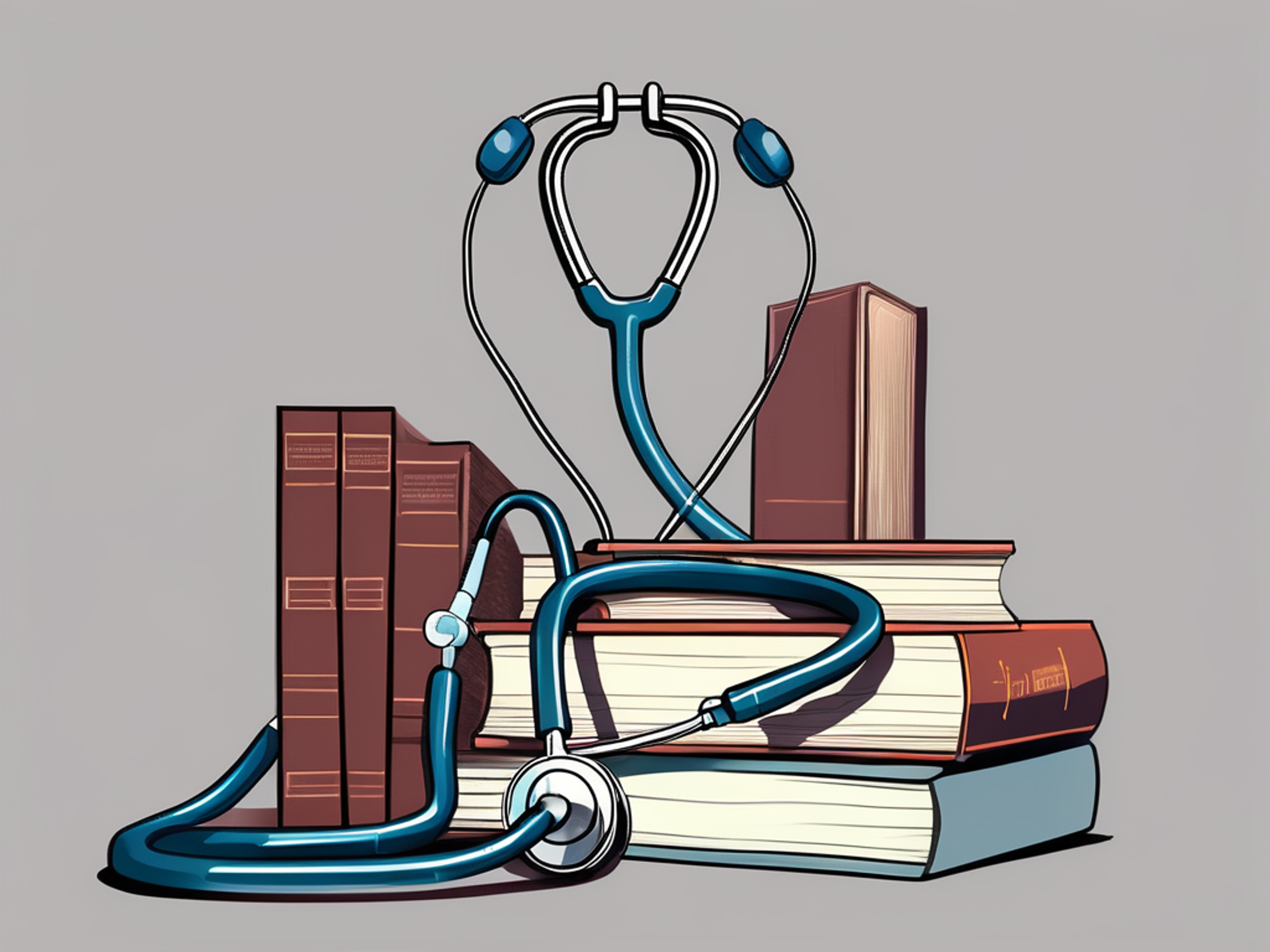Exploring the Path to Becoming a Cardiologist: Education and Training
Discover the journey to becoming a cardiologist with our comprehensive guide to education and training.
Posted April 3, 2025

Table of Contents
Cardiology is a specialized field in medicine concerned with the diagnosis, treatment, and prevention of cardiovascular diseases. If you are considering pursuing a career in cardiology, it is important to understand the educational and training requirements needed to become a successful cardiologist.
Why Choose Cardiology?
Cardiology is one of the most exciting and challenging fields in medicine, and it offers numerous opportunities to make a positive impact on people's lives. The cardiovascular system is fundamental to every aspect of the human body, and this makes cardiology a critical specialty for maintaining good health. Cardiologists are responsible for diagnosing and treating various cardiovascular conditions. These may include coronary artery disease, heart failure, arrhythmias, and valvular heart disease, all of which can be life-threatening if not properly addressed.
Furthermore, cardiology is a constantly evolving field, with new research and technologies emerging all the time. This means that cardiologists must stay up-to-date with the latest developments in order to provide the best possible care for their patients. This ongoing learning process keeps the work of a cardiologist intellectually stimulating and rewarding.
Finally, cardiology is a field that allows for a great deal of collaboration with other healthcare professionals. Cardiologists often work closely with primary care physicians, nurses, and other specialists to provide comprehensive care for their patients. This team-based approach can lead to better outcomes for patients and a more fulfilling work environment for healthcare professionals.
Understanding the Role of a Cardiologist
A cardiologist is a medical doctor who specializes in the diagnosis and treatment of heart and cardiovascular diseases. Cardiologists use various diagnostic tools such as laboratory tests, electrocardiograms, echocardiograms, and cardiac catheterizations to evaluate and diagnose patients. They may also prescribe medications, perform various medical procedures, and recommend lifestyle changes to manage or prevent cardiovascular diseases.
Cardiologists work closely with other healthcare professionals such as primary care physicians, nurses, and surgeons to provide comprehensive care to patients with heart and cardiovascular diseases. They may also collaborate with researchers to develop new treatments and technologies to improve patient outcomes.
It is important to note that not all heart conditions require the expertise of a cardiologist. Patients with minor heart conditions may be treated by their primary care physician, while those with more complex conditions may require the specialized care of a cardiologist. It is always best to consult with a healthcare professional to determine the appropriate course of treatment for your specific condition.
Cardiologist Job Outlook and Salary Expectations
The demand for cardiologists is expected to grow in the coming years. This is due to several factors, including an aging population, an increase in the number of people with cardiovascular diseases, and advancements in technology and research in the field. The median annual salary for cardiologists in the United States is around $450,000, making it one of the highest paid medical specialties.
In addition to the high salary, cardiologists also have the opportunity to make a significant impact on their patients' lives. They are responsible for diagnosing and treating heart conditions, which can be life-threatening if left untreated. Cardiologists work closely with other healthcare professionals, such as nurses and surgeons, to provide comprehensive care to their patients. They may also conduct research to develop new treatments and improve existing ones.
The Importance of a Strong Foundation in Medical Education
A strong foundation in medical education is essential for becoming a successful cardiologist. This usually begins with a Bachelor's degree, which serves as a prerequisite for admission to medical school. It is important to focus on science-related courses such as biology, chemistry, anatomy, and physiology during undergraduate studies.
Additionally, gaining experience in a healthcare setting through internships or volunteering can also provide valuable insight into the medical field and help solidify one's interest in pursuing a career in cardiology. Furthermore, continuing education and staying up-to-date with the latest advancements in the field is crucial for providing the best possible care to patients.
Undergraduate Studies: Preparing for a Career in Cardiology
Once you complete your undergraduate studies, you must take the Medical College Admission Test (MCAT) and apply to medical school. The MCAT assesses your knowledge of scientific concepts, critical thinking, and problem-solving skills. Additionally, you should also engage in extracurricular activities such as volunteering in hospitals or clinics, participating in scientific research, and shadowing physicians to gain practical experience and enhance your application.
Cardiology is a highly specialized field of medicine that deals with the diagnosis and treatment of heart diseases. As an aspiring cardiologist, you should focus on taking courses in biology, chemistry, physics, and mathematics during your undergraduate studies. These courses will provide you with a strong foundation in the sciences and prepare you for the rigorous curriculum of medical school. Additionally, you should consider joining pre-medical clubs and organizations on campus to network with other students who share your interests and goals.
Medical School: Focusing on Cardiovascular Health and Diseases
Medical school takes four years to complete, during which you will study a range of topics such as anatomy, physiology, pharmacology, and pathology. You will also learn about cardiovascular health and diseases, as well as the diagnostic and treatment modalities involved. In the third and fourth years of medical school, you will gain practical experience through clinical rotations under the supervision of experienced physicians.
Cardiovascular diseases are the leading cause of death worldwide, and medical schools are placing a greater emphasis on training future physicians to address this issue. In addition to the traditional curriculum, medical schools are now offering specialized courses and electives in cardiovascular health and diseases. These courses cover topics such as risk factors, prevention strategies, and emerging treatments.
After completing medical school, physicians can pursue further training in cardiovascular medicine through a fellowship program. This additional training allows them to specialize in the diagnosis and treatment of cardiovascular diseases, and to stay up-to-date with the latest research and advancements in the field.
Residency Programs: Gaining Practical Experience in Cardiology
After completing medical school, you must apply for a residency program in internal medicine, which usually takes three years to complete. During this period, you will receive specialized training in diagnosing and treating various internal medicine conditions, including cardiovascular diseases.
Cardiology is a highly specialized field within internal medicine, and many residency programs offer additional training in this area. As a resident in a cardiology program, you will gain practical experience in performing and interpreting diagnostic tests, such as electrocardiograms and echocardiograms, as well as in managing patients with complex cardiovascular conditions. This experience will prepare you for a career as a cardiologist or other cardiovascular specialist.
Fellowship Programs: Specializing in Cardiovascular Subspecialties
Upon completing your residency, you can apply for a fellowship program in cardiology, which takes an additional two to three years to complete. During this period, you will receive specialized training in various cardiovascular subspecialties such as electrophysiology, interventional cardiology, and advanced heart failure and transplantation, among others.
Board Certification and Continuing Education Requirements for Cardiologists
After completing your fellowship, you must obtain board certification in cardiology from the American Board of Internal Medicine (ABIM). This involves passing a rigorous examination that tests your knowledge, skills, and abilities in diagnosing and treating cardiovascular diseases. Additionally, you must also engage in continuous medical education to maintain your board certification and stay up-to-date with the latest advancements in the field.
Skills and Qualities Required to Become a Successful Cardiologist
To become a successful cardiologist, you need to possess various intellectual and personal attributes. These include excellent problem-solving skills, strong attention to detail, effective communication skills, empathy, and a passion for lifelong learning. Additionally, you should be able to handle pressure and stressful situations with ease.
A Day in the Life of a Cardiologist
A typical day in the life of a cardiologist involves seeing patients, reviewing medical records, performing various diagnostic tests and procedures, working with other healthcare professionals such as nurses and technicians, and staying up-to-date with the latest research and treatment modalities. Cardiologists may work long hours, including weekends and holidays, and their work involves a great deal of personal and professional responsibility.
Challenges Faced by Cardiologists and How to Overcome Them
Cardiologists face several challenges in their practice, including increasing demand for their services, ever-changing technology and treatment modalities, and growing administrative burdens. To overcome these challenges, it is important to stay up-to-date with the latest advancements in the field, maintain a healthy work-life balance, and work with a team of professionals who share your passion for providing excellent patient care.
Advancements in Technology and Research in the Field of Cardiology
The field of cardiology is constantly evolving, with new technological advancements and research showing promise for cardiovascular disease prevention and treatment. Some recent developments include advances in minimally invasive procedures, the use of artificial intelligence in diagnosis and risk prediction, and the development of innovative cardiovascular devices and medications.
Future of Cardiology: Predictions and Trends
The future of cardiology is promising, with continued research and development leading to better prevention and treatment outcomes for cardiovascular disease. Furthermore, the use of artificial intelligence and big data analytics is expected to revolutionize the way cardiologists diagnose and treat patients. In the coming years, the focus will be on further personalizing care and improving outcomes for patients.
In conclusion, becoming a cardiologist requires years of dedicated education and training. However, for those with a passion for cardiovascular health and diseases, the rewards are immeasurable. Cardiologists can make a profound difference in the lives of their patients and contribute to the advancement of the field through research and innovation.











